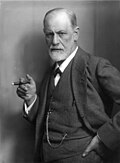Sexology
Sexology is the scientific study of human sexuality, including human sexual interests, behaviors, and functions. The term was first used in the late 19th century by a German psychologist, Richard von Krafft-Ebing, who conducted one of the first recorded studies of sexual behavior.
History[edit]
The history of sexology begins with the works of Richard von Krafft-Ebing and Havelock Ellis. Both were pioneers in the field, with Krafft-Ebing coining the term "sexology" and Ellis conducting some of the first comprehensive studies of sexual behavior.
Branches of Sexology[edit]
Sexology is a multidisciplinary field and includes several branches, such as:
- Clinical sexology: This branch focuses on the diagnosis and treatment of sexual dysfunctions and disorders.
- Developmental sexology: This branch studies the development of sexual behavior and orientation from infancy to adulthood.
- Forensic sexology: This branch deals with the legal aspects of sexual behavior, including sexual crimes and legal issues related to sexuality.
- Sexual education: This branch focuses on the education of individuals about sexual behavior, sexual health, and sexual relationships.
Notable Sexologists[edit]
Some of the most notable sexologists include:
- Richard von Krafft-Ebing: A German psychiatrist and author of the seminal work "Psychopathia Sexualis".
- Havelock Ellis: An English physician, writer, and social reformer who studied human sexuality.
- Alfred Kinsey: An American biologist, professor of entomology and zoology, and sexologist who founded the Institute for Sex Research at Indiana University.
- Masters and Johnson: A research team consisting of William H. Masters and Virginia E. Johnson, who were pioneers in the study of human sexuality.
See Also[edit]
Ad. Transform your life with W8MD's Budget GLP-1 injections from $75


W8MD offers a medical weight loss program to lose weight in Philadelphia. Our physician-supervised medical weight loss provides:
- Weight loss injections in NYC (generic and brand names):
- Zepbound / Mounjaro, Wegovy / Ozempic, Saxenda
- Most insurances accepted or discounted self-pay rates. We will obtain insurance prior authorizations if needed.
- Generic GLP1 weight loss injections from $75 for the starting dose.
- Also offer prescription weight loss medications including Phentermine, Qsymia, Diethylpropion, Contrave etc.
NYC weight loss doctor appointmentsNYC weight loss doctor appointments
Start your NYC weight loss journey today at our NYC medical weight loss and Philadelphia medical weight loss clinics.
- Call 718-946-5500 to lose weight in NYC or for medical weight loss in Philadelphia 215-676-2334.
- Tags:NYC medical weight loss, Philadelphia lose weight Zepbound NYC, Budget GLP1 weight loss injections, Wegovy Philadelphia, Wegovy NYC, Philadelphia medical weight loss, Brookly weight loss and Wegovy NYC
|
WikiMD's Wellness Encyclopedia |
| Let Food Be Thy Medicine Medicine Thy Food - Hippocrates |
Medical Disclaimer: WikiMD is not a substitute for professional medical advice. The information on WikiMD is provided as an information resource only, may be incorrect, outdated or misleading, and is not to be used or relied on for any diagnostic or treatment purposes. Please consult your health care provider before making any healthcare decisions or for guidance about a specific medical condition. WikiMD expressly disclaims responsibility, and shall have no liability, for any damages, loss, injury, or liability whatsoever suffered as a result of your reliance on the information contained in this site. By visiting this site you agree to the foregoing terms and conditions, which may from time to time be changed or supplemented by WikiMD. If you do not agree to the foregoing terms and conditions, you should not enter or use this site. See full disclaimer.
Credits:Most images are courtesy of Wikimedia commons, and templates, categories Wikipedia, licensed under CC BY SA or similar.
Translate this page: - East Asian
中文,
日本,
한국어,
South Asian
हिन्दी,
தமிழ்,
తెలుగు,
Urdu,
ಕನ್ನಡ,
Southeast Asian
Indonesian,
Vietnamese,
Thai,
မြန်မာဘာသာ,
বাংলা
European
español,
Deutsch,
français,
Greek,
português do Brasil,
polski,
română,
русский,
Nederlands,
norsk,
svenska,
suomi,
Italian
Middle Eastern & African
عربى,
Turkish,
Persian,
Hebrew,
Afrikaans,
isiZulu,
Kiswahili,
Other
Bulgarian,
Hungarian,
Czech,
Swedish,
മലയാളം,
मराठी,
ਪੰਜਾਬੀ,
ગુજરાતી,
Portuguese,
Ukrainian








